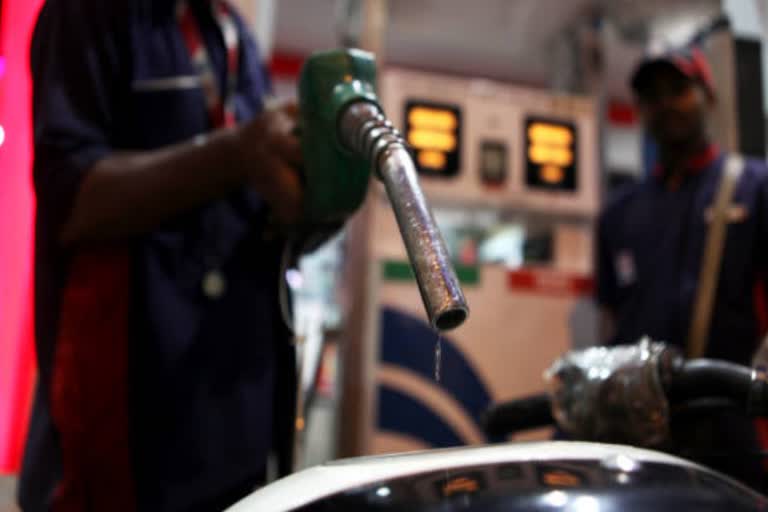Hyderabad: On 9th December, 2020, retail fuel prices in India touched their highest level since October 2018. While petrol is sold at Rs. 83.71 per litre, diesel is priced at Rs. 73.87 per litre in the national capital.
The prices remained unchanged for six consecutive days after that, and there are further expectations that they could rise further, subject to the changes in the global crude oil prices. This hike in the retail fuel prices came in the backdrop of India’s Oil marketing companies’ decision to hike the prices of petrol and diesel by over Rs 2 and by nearly Rs 3.50 respectively. There are two fundamental reasons behind this rise in the domestic fuel prices.
The first reason is the rising global crude oil prices. Brent crude constitutes a large share of India’s crude basket and the price of Brent crude touched nearly $49 per Barrel, from its $ 19 per barrel in April 2020.
In this context, it is to be noted that, the Government of India deregulated the domestic petrol prices in 2010, in order to keep them in tandem with the global crude oil prices. Technically, the domestic fuel prices goes up when the global crude oil prices raise and vice versa. The latest OPEC plus deal had resulted the rise in the global crude oil prices and thus triggered a rise in domestic fuel prices.
The second reason for this rise is the improvement in the demand outlook for petrol and diesel, in the wake of relaxed Covid-19 restrictions and the prospects of the vaccine for Corona virus to be available soon.
The Conundrum of Taxes
While the trigger for the rise in domestic prices holds a valid logic, it is to be noted that another 29 paise per litre increase in petrol prices would take their prices to the highest level ever recorded in the national capital. Last time they touched Rs 84 per liter on October 4, 2018, when the global crude oil prices was at around $80 per barrel.
Now at the level of $49 per barrel the prices should have been lower than that, given the price deregulation mechanism in India. This did not happen due to the large scale taxes, duties, cess levied by Union Government and different state governments. For instance, excise duty and VAT, contributes to nearly 63 per cent of petrol and 60 per cent of diesel costs in Delhi.
As the Covid-19 pandemic devastated the finances of the Centre and States, they further increased taxes on fuel to generate additional revenues, to meet out the rising expenditure in the pandemic times. According to the Petroleum Planning and Analysis Cell (PPAC), petrol prices were revised 56 times and the diesel prices were revised 67 times in Delhi, since April 2020.
Except for the period between September-October 2020, these prices witnessed an upward trend. In fact, when the crude oil prices went down, the respective governments imposed taxes on domestic fuel prices and offset the gains from favourable global oil prices.
Read more:Automation and job losses amid COVID-19
